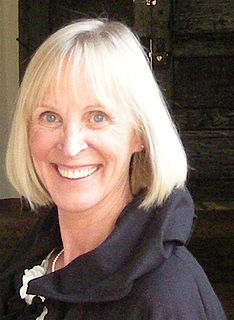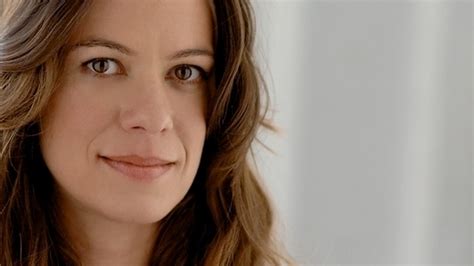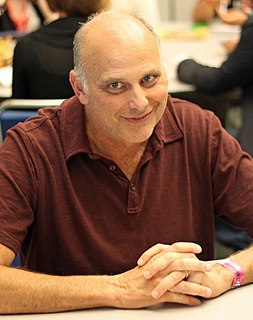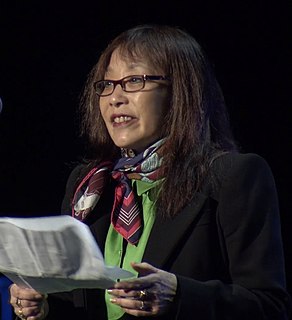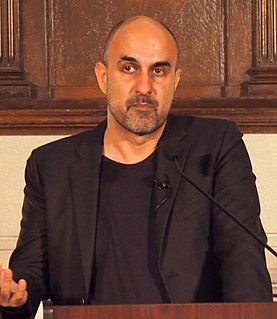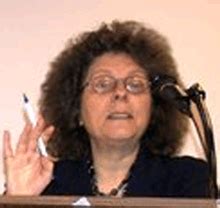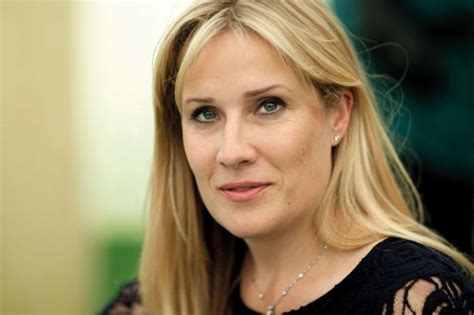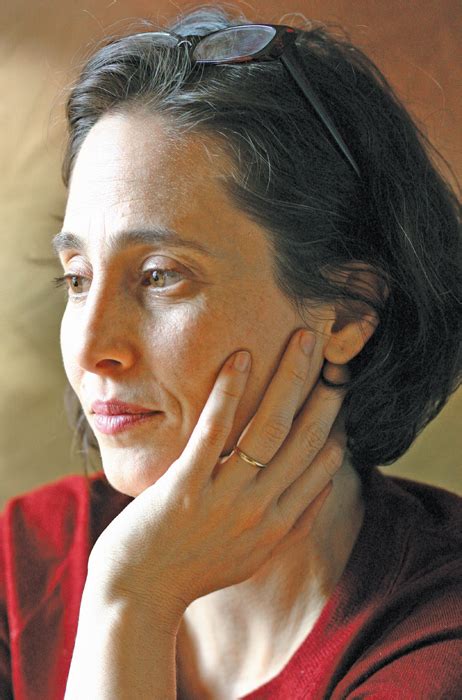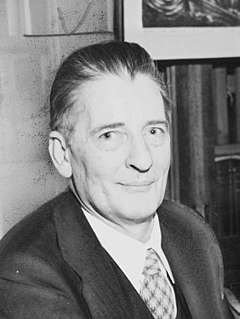Top 1200 Novel Writing Quotes & Sayings - Page 18
Explore popular Novel Writing quotes.
Last updated on December 19, 2024.
Now, as a reader, you shouldn't feel the decisions the writer makes about this DNA, or it would be boring beyond belief. But, as a writer, you're struggling to make these decisions. What should the title be? What's the first line? The point of view? And the struggle with the decisions is because you're trying to figure out WHAT IS THE NOVEL, WHAT IS THE NOVEL?
'We Were the Mulvaneys' is perhaps the novel closest to my heart. I think of it as a valentine to a passing way of American life, and to my own particular child - and girlhood in upstate New York. Everyone in the novel is enormously close to me, including Marianne's cat, Muffin, who was in fact my own cat.
After the novel was published, I came to feel that I couldn't call myself Orthodox anymore. It's so patriarchal, anti-women, anti-gay. There was something about writing 'Disobedience'... it felt like I had put it all in the book. I had done my best by it, recorded what it meant for me. I felt I was done.
What must novel dialogue . . . really be and do? It must be pointed, intentional, relevant. It must crystallize situation. It must express character. It must advance plot. During dialogue, the characters confront one another. The confrontation is in itself an occasion. Each one of these occasions, throughout the novel, is unique.
I think a good story can do as much as a novel; not the exact same thing, of course, but just as much artistically. They're different beasts, but to tackle an expansive country like the United States, you're either going to write a big novel, or go in to various points on the map and write stories or poems.
A psychologically engrossing novel about the homes we make-in our houses, in our neighborhoods, and in the hearts of our loved ones. Laken takes on that great unspoken American subject-class-and does so with frankness, acuity and surpassing feeling. DREAM HOUSE is a memorable debut novel from a fully mature talent.
The Confessions of Catherine de Medici is a dramatic, epic novel of an all-too-human woman whose strength and passion propelled her into the center of grand events. Meticulously-researched, this engrossing novel offers a fresh portrait of a queen who has too often been portrayed as a villain. Bravo Mr. Gortner!
Just when you thought the mafia novel was dead, Tod Goldberg breathes new life into it. Gangsterland, the best mafia novel in years, is a dark, funny, and smart page-turning crime story. It's also a moving, thoughtful meditation on ethics, religion, family, and a culture that eats itself. I loved this book.
Most of the complexity of the stories has developed as the stories came along (and may be a product of the principle that "nothing is what it seems"). I did start with some essential ambiguousness in the aliens' motivation and the questions this raises in human minds, which I consider to have been disregarded in Contact (novel and film). That, in part, may be what has delayed the writing of the fifth and sixth novelettes in the series.
A few of Ellison's short stories from the 1940s and 1950s were widely anthologized over the years. After a while, it became generally known that he was at work on another novel. Though he remained aware ever afterward of the authority 'Invisible Man' gave to him, no second novel followed his brilliant debut in 1952.
..The truly fraudulent claims must be discarded. But novel methods of therapy should not be rejected because they are novel, or because they run counter to some generally accepted belief ("which may just be biased"), or because we do not understand the mechanism of the proposed treatment, or because it has come from an unconventional source.
A good novel is something that challenges perception, that allows you to see the world anew through a different point of view - something that genre fiction doesn't do, although it sells more because it doesn't disturb people's innate sense of what a novel should be about. Often, people want characters to be nice, for example.
Yes. To write a novel is to risk my sanity. The deeper I get into the suffering and conflict of the characters, into the very situations and thoughts and feelings that make the novel worthwhile, the worse I feel, and the more likely I am to be severely depressed when the book is finished. There is no avoiding this: it is the result of attempting to tell all you know, to reach for the stars, to write what matters.
It's true that the young who now flock to script writing, or producing and directing, to fulfill the demands of these new devices would, in an earlier period, have been submitting to magazines and working on their first novels. But even in the midst of all these "digital products," the wonder of it is that there are still so many young writers who continue to believe in the venerable print novel as the corridor to fame and fortune.
Mr. Robinson and Mr. Kovite have...written a captivating coming-of-age novel that is, by turns, funny and sad and elegiac -\-\ a novel that leaves us with some revealing snapshots of America, both at war and in denial, and some telling portraits of a couple of millennials trying to grope their way toward adulthood.
I want to view my own efforts to write a novel as a function of my own artistic aspirations rather than a good career move. And I need to learn how to commit to characters for a longer time, to confront the limits of my own capacities for attention and compassion. That's what a writing career does, in the best instance: it allows you to keep after what you can't do.
In writing a novel, the writer must be able to identify emotionally and intellectually with two or three or four contradicting perspectives and give each of them very a convincing voice. It's like playing tennis with yourself and you have to be on both sides of the yard. You have to be on both sides, or all sides if there are more than two sides.
In 1965, when I was fourteen, I read my first adult novel; it was a historical novel about Katherine of Aragon, and I could not put it down. When I finished it, I had to find out the true facts behind the story and if people really carried on like that in those days. So I began to read proper history books, and found that they did!
[My novel] took up the sweetest part of my mind and the rarest part of my imagination; it was like being in love and better. All day long when I was busy [...], I had my unfinished novel personified almost as a secret companion and accomplice following me like a shadow wherever I went, whatever I did.
Write all the time. I believe in writing every day, at least a thousand words a day. We have a strange idea about writing: that it can be done, and done well, without a great deal of effort. Dancers practice every day, musicians practice every day, even when they are at the peak of their careers – especially then. Somehow, we don’t take writing as seriously. But writing – writing wonderfully – takes just as much dedication.
I don't think any particular painters have inspired me, except in a general sense. It was more a matter of corroboration. The visual arts, from Manet onwards, seemed far more open to change and experiment than the novel, though that's only partly the fault of the writers. There's something about the novel that resists innovation.
I realized I had a novel on my hands, but didn't know where it was going to go. So I thought, 'I'm going to do everything that you're not supposed to do when you plan a novel; I'm going to step back and let this thing take itself wherever it wants to go, and I'm not going to worry about how things connect until later on.'
At last, after almost fifty years in the hopper, the most famous unpublished novel in America is in print. Who Shot the Water Buffalo? is a splendid story of comradeship in a time and place of constant peril, but it's Babbs's irrepressible exuberance and vast, affectionate good humor that make the story go. I love this novel.
When I used to teach writing, what I would tell my playwriting students is that while you're writing your plays, you're also writing the playwright. You're developing yourself as a persona, as a public persona. It's going to be partly exposed through the writing itself and partly created by all the paraphernalia that attaches itself to writing. But you aren't simply an invisible being or your own private being at work. You're kind of a public figure, as well.
I think the most important thing is just to write. It sounds so simple, but sometimes it's not. You can get so distracted - -by having to work other jobs, or what other people have to say about your writing - -but the one thing that really matters is that you just keep going, especially when you're working on a novel. It's so easy to get discouraged and give up.
Executive Severance, a laugh out loud comic mystery novel, epitomizes our current cultural moment in that it is born from the juxtaposition of authorial invention and technological communication innovation. Merging creative text with new electronic context, Robert K. Blechman's novel, which originally appeared as Twitter entries, can be read on a cell phone. His tweets which merge to form an entertaining novel can't be beat. Hold the phone; exalt in the mystery-engage with Blechman's story which signals the inception of a new literary art form.
In the course of writing a book I'll produce loads of pieces of paper to help the novel itself. Diagrams, charts, family trees. And at the end of each book I'll pack it all away. It takes me a while to do it - it's like a relationship that way; there's a period of letting - go, of grief, in a way - but then I box it up, label it, and put it in the attic.
I always think I know the way a novel will go. I write maps on oversized art pads like the kind I carried around in college when I was earnest about drawing. I need to have some idea of the shape of the novel, where its headed, so that I can proceed with confidence. But the truth is my characters start doing and saying things I don't expect.
Fitzgerald could sense that America was poised on the edge of a vast transformation, and wrote a novel bridging his moment and ours. The Great Gatsby made manifest precisely what Fitzgerald’s contemporaries couldn’t bear to see, and thus it is not only the Jazz Age novel par excellence, but also the harbinger of its decline and fall.
I had tried writing novels for many years, and they always escaped me. For a long time, I thought, 'It's just not in me to write a novel. It's not something I'm able to do.' It seemed like everything I wrote naturally ended at the bottom of page three. A picture book, three pages; an essay, three pages.
If you want to draw people into the story, you really have to write as if you're writing a novel and make these actually-existing people, including the actually-existing person with my name, into a believable person on the page. And that requires distance. That requires not being right up against the events you're talking about.
A screenwriter heard me read from my novel 'The Wishbones' when it was still in progress and mentioned me to some producers in Hollywood. They called, and I told them I had a novel in my drawer about a high school election that goes haywire. They asked to take a look, and my life changed pretty dramatically as a result.
Writing a novel is a very hard thing to do because it covers so long a space of time, and if you get discouraged it is not a bad sign, but a good one. If you think you are not doing it well, you are thinking the way real novelists do. I never knew one who did not feel greatly discouraged at times, and some get desperate, and I have always found that to be a good symptom.
The Lusitania is important, of course, because this is where Germany began its maritime campaign using this brand-new weapon. We have to appreciate how the submarine, as a weapon against civilian shipping, was a particularly novel thing - so novel that many people at the time dismissed its potential power, its potential relevance.
I realized I had a novel on my hands, but didn't know where it was going to go. So I thought, 'I'm going to do everything that you're not supposed to do when you plan a novel; I'm going to step back and let this thing take itself wherever it wants to go, and I'm not going to worry about how things connect until later on.










